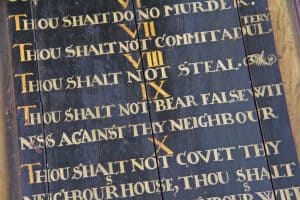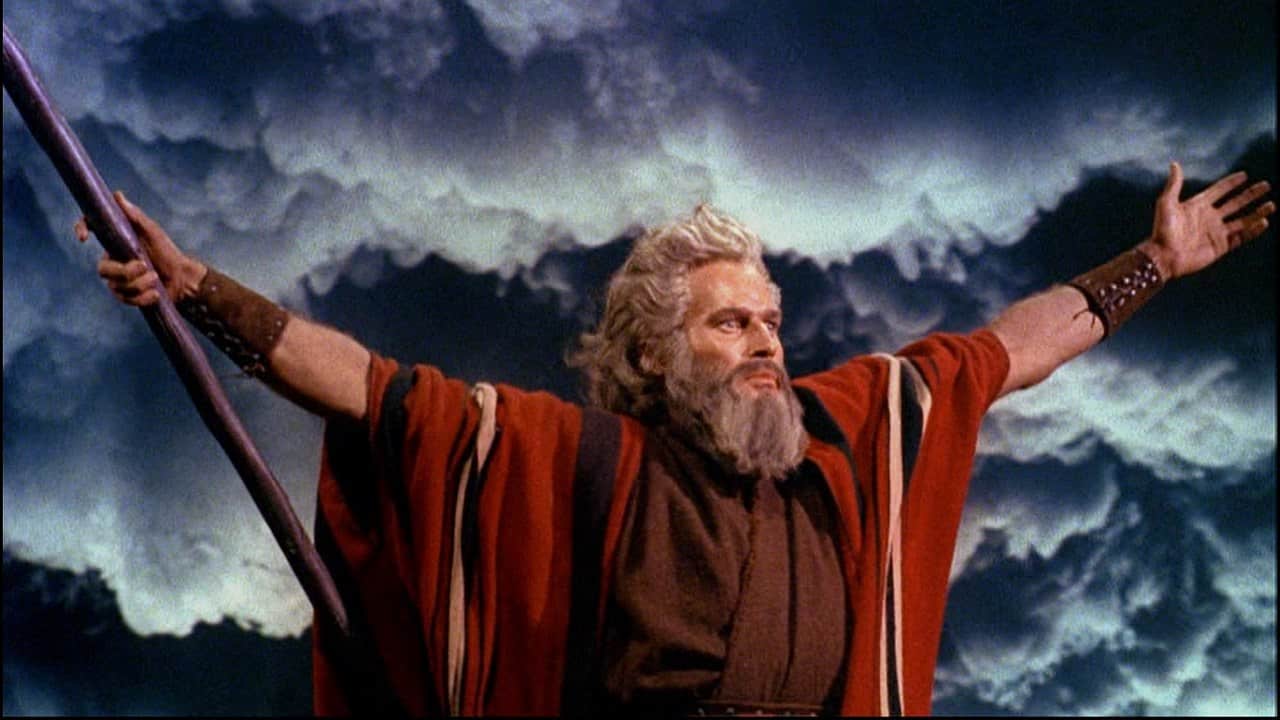The complete series is available here. This material has been adapted from part 2.
Principle 3: God and His laws establish the track on which men and nations must travel to attain happiness, fulfillment, greatness; and to reach their God-given potential.

While the Declaration of Independence frames this principle in the context of Colonial opposition to British tyranny and the forming of a new nation to secure and protect citizens’ inherent rights, the lesson has an even broader application. Both people and governments are accountable to God. Our Founders knew that men and women cannot live fulfilled lives by merely following their whims and desires, treading down whatever paths their raw appetites direct them. Rather, they must “assume among the powers of the earth, the separate and equal station to which the Laws of Nature and of Nature’s God entitle them.” The word entitle is important here, and it appears both in Jefferson’s draft and in the final document. Entitle as the Founders used it is light years away from the meanings it and its various forms frequently carry today. How do we know this? Because according to the men who ratified the Declaration, that to which the people are entitled is granted and governed according to “the Laws of Nature and of Nature’s God.”
Entitle as the Founders used it is light years away from the meanings it and its various forms frequently carry today.
Take note! These parameters are not nearly as restrictive as they are liberating. Within them, people can “alter or…abolish” government that will not secure and protect unalienable, God-given rights “and…institute new Government, laying its foundation on such principles and organizing its powers in such form, as to them shall seem most likely to effect their Safety and Happiness.” According to the Founders, this perspective of the people — the “form [that]…to them shall seem most likely to affect their Safety and Happiness” — also is governed and regulated by God and His laws. No wonder we find these lines in the patriotic hymn, “America, the Beautiful“:
America! America!
God mend thine every flaw,
Confirm thy soul in self-control,
Thy liberty in law!
Sadly, the idea that liberty and law go together is a foreign concept to Americans today. Many, if not most, see these two elements as totally contradictory. But they’re not! Not only are they compatible; they’re inseparable! How can a nation prosper? How can liberty thrive? Only under God!

- John Adams put it this way: “[I]t is religion and morality alone which can establish the principles upon which freedom can securely stand. The only foundation of a free constitution is pure virtue.”
- John Adams’s second cousin, Samuel Adams, said this: “[N]either the wisest constitution nor the wisest laws will secure the liberty and happiness of a people whose manners are universally corrupt.”
- Born a bit later than the Founders (on January 18, 1782), Daniel Webster became a powerful orator and lawyer, a member of the US House of Representatives, a US Senator, and Secretary of State under Presidents William Henry Harrison, John Tyler, and Millard Fillmore. Webster declared, “If we and our posterity reject religious instruction and authority, violate the rules of eternal justice, trifle with the injunctions of morality, and recklessly destroy the political Constitution which holds us together, no man can tell how sudden a catastrophe may overwhelm us, that shall bury all our glory in profound obscurity.”
If we and our posterity reject religious instruction and authority, violate the rules of eternal justice, trifle with the injunctions of morality, and recklessly destroy the political Constitution which holds us together, no man can tell how sudden a catastrophe may overwhelm us, that shall bury all our glory in profound obscurity.
—Daniel Webster—
By the way, the concept of “eternal justice” as Daniel Webster used it stands firmly against “social justice,” a movement that calls for government intervention to achieve “equality.”
top image: Charlton Heston as Moses in the Paramount Pictures release The Ten Commandments
This page is part of a larger article.
Copyright © 2019 by B. Nathaniel Sullivan. All rights reserved.
